Just before the pandemic, it felt like plus size fashion was taking over. Brands were finally recognizing the purchasing power of 67% of women, and extended sizing became the fastest-growing segment of the fashion industry, topping $22 billion annually in the U.S. Fashion Week runways teemed with curve models, and body-positive influencers took over the front rows.
But in 2024, in the aftermath of a post-COVID economy and the resurgence of “get skinny quick” schemes, plus size bodies no longer seem to be in vogue. This regression has been deeply disheartening—not only as an advocate for size inclusivity but also as an everyday consumer. It feels as though the comfort and progress we’ve fought for are slipping away. Conversations have reverted to lamenting the lack of options for sizes 18+ and battling diet culture.
Yet, amidst this backslide, I’ve found solace and strength in a growing niche: plus size independent designers. We are a small but mighty community striving to weather the storm, cutting through the noise of fast fashion giants and industry darlings.
Years ago, as the U.S. editor of the plus size magazine SLiNK, I often interviewed major brands who claimed they couldn’t sustain plus sizes due to the “extra fabric costs.” They told me that producing larger sizes required significantly more fabric, making the garments prohibitively expensive compared to straight sizes.
Fast forward to today, and my experience as a plus size designer with a small luxury plus size brand, RCA Public Label, has revealed the truth: those claims were lies. The difference in fabric between a size 10 and a size 20 is less than a yard. While creating quality clothing is undoubtedly costly, but if small, startup brands can successfully produce plus sizes, there’s no excuse for major corporations not to do the same.
From Necessity to Innovation
In March 2020, as the pandemic disrupted the world, I connected with a group of furloughed fashion freelancers. Together, we began making hospital gowns and masks for donation to overwhelmed hospitals in NYC.
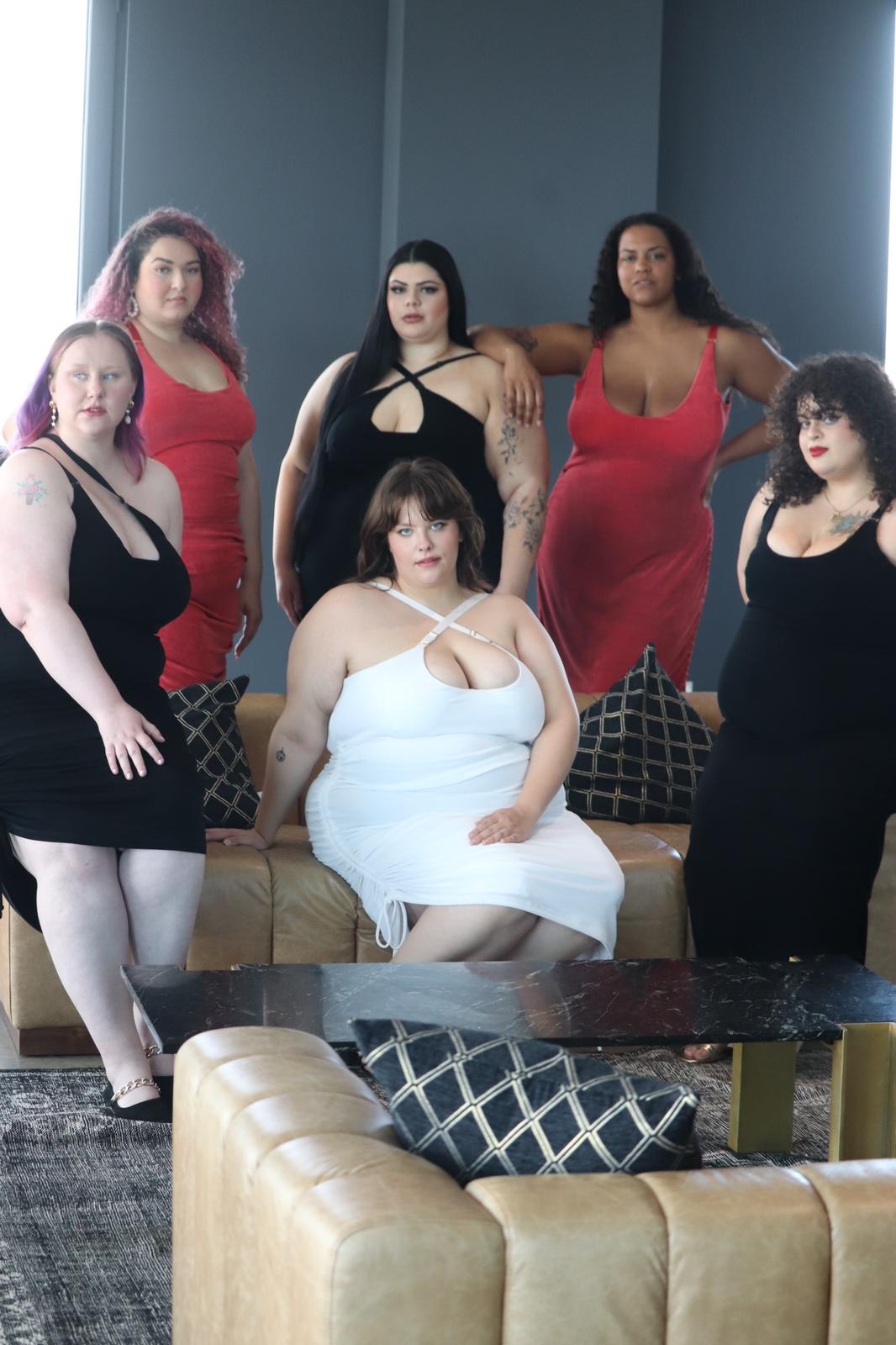
This collaboration reignited my creativity and led me to revisit long-forgotten designs, including a dress concept I first envisioned in 2009: a wrinkle-resistant, moisture-wicking dress with a built-in bra, convertible straps, and an adjustable hemline.
After navigating countless challenges, that concept became the patented Game Changer Dress from my brand, RCA Public Label. Its success gave me the confidence to launch a luxury ready-to-wear brand and couture design house aimed at addressing the chronic fit and style issues faced by plus size consumers.
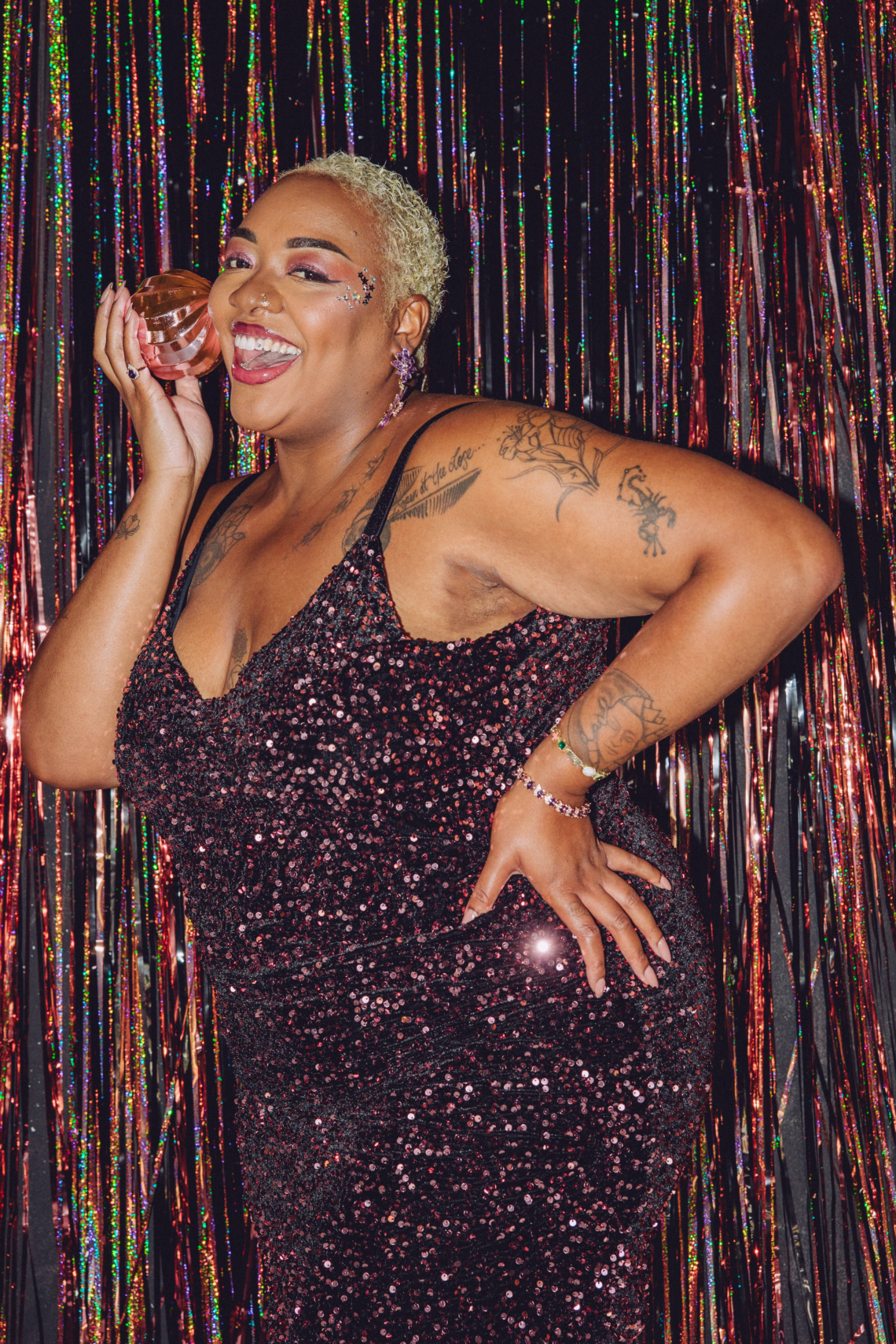
Why Representation Matters
From ample shirt panels that button comfortably over a large bust to miniskirts with extra “booty coverage” (what I call “the ass allowance”), my designs are born from the lived experience of being plus size. These are innovative yet practical solutions that the mainstream industry often overlooks.
The need for more plus size women leading brands was a key topic at a recent panel featuring notable plus size figures and members of the press. They highlighted many of the same issues I’ve encountered: the need for better grading, precise fitting, ethical business practices, sustainability, more diverse aesthetics, and luxury options. As a designer and small business owner who checks all these boxes, I found myself wanting to shout, “I’m right here!”
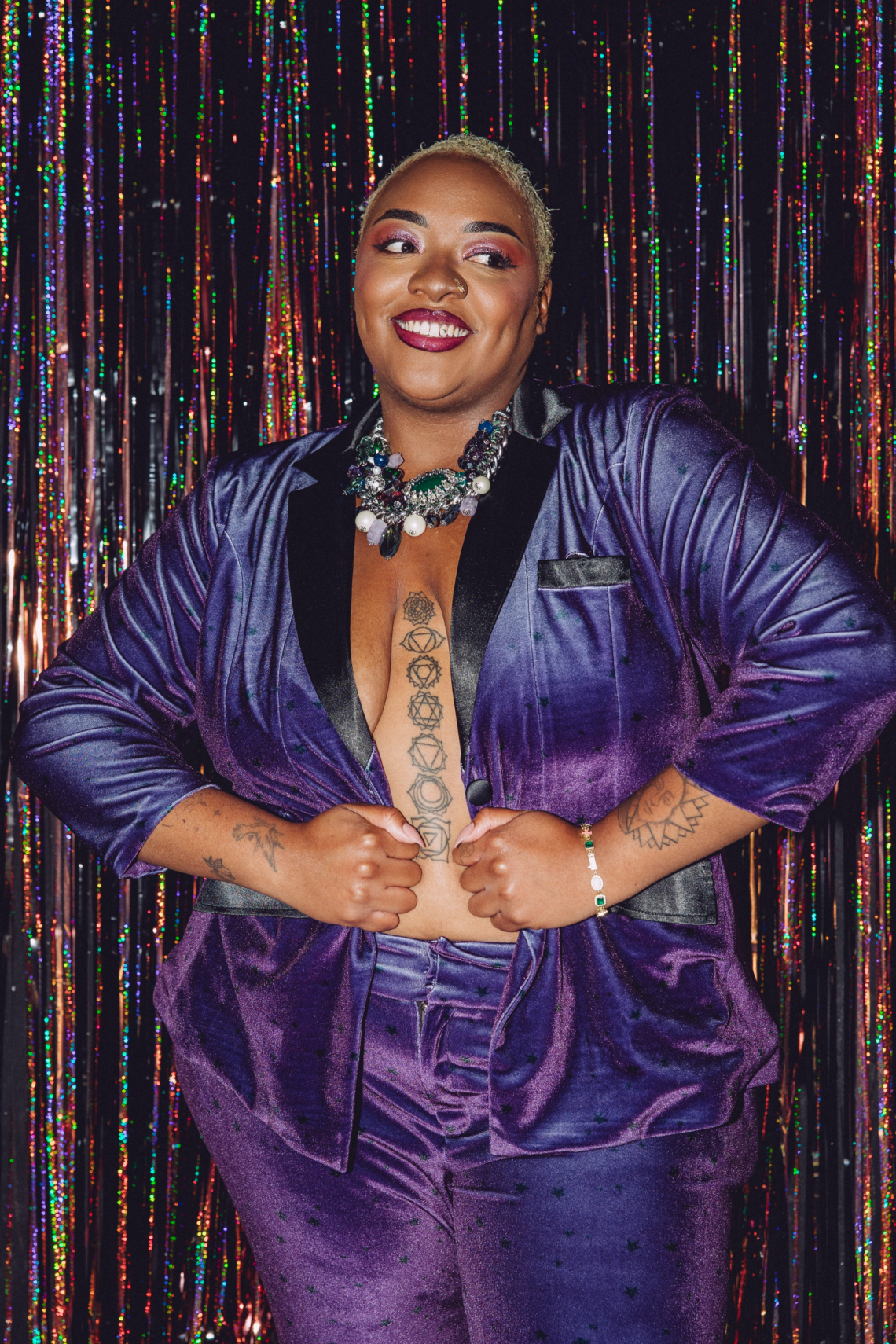
Unfortunately, the most established press outlets rarely spotlight emerging plus size designers, trapping us in a frustrating cycle of trying to gain visibility. That’s why I’m incredibly grateful for platforms like TCF and for supportive plus size influencers who help me reach my customers—many of whom are still being underserved by mass-produced, lower-quality brands.
While my brand, Renee Cafaro Atelier (RCA), embodies these values, I’ve found it incredibly difficult to break through. Established media outlets rarely spotlight emerging designers, perpetuating a vicious cycle where we struggle to gain visibility.
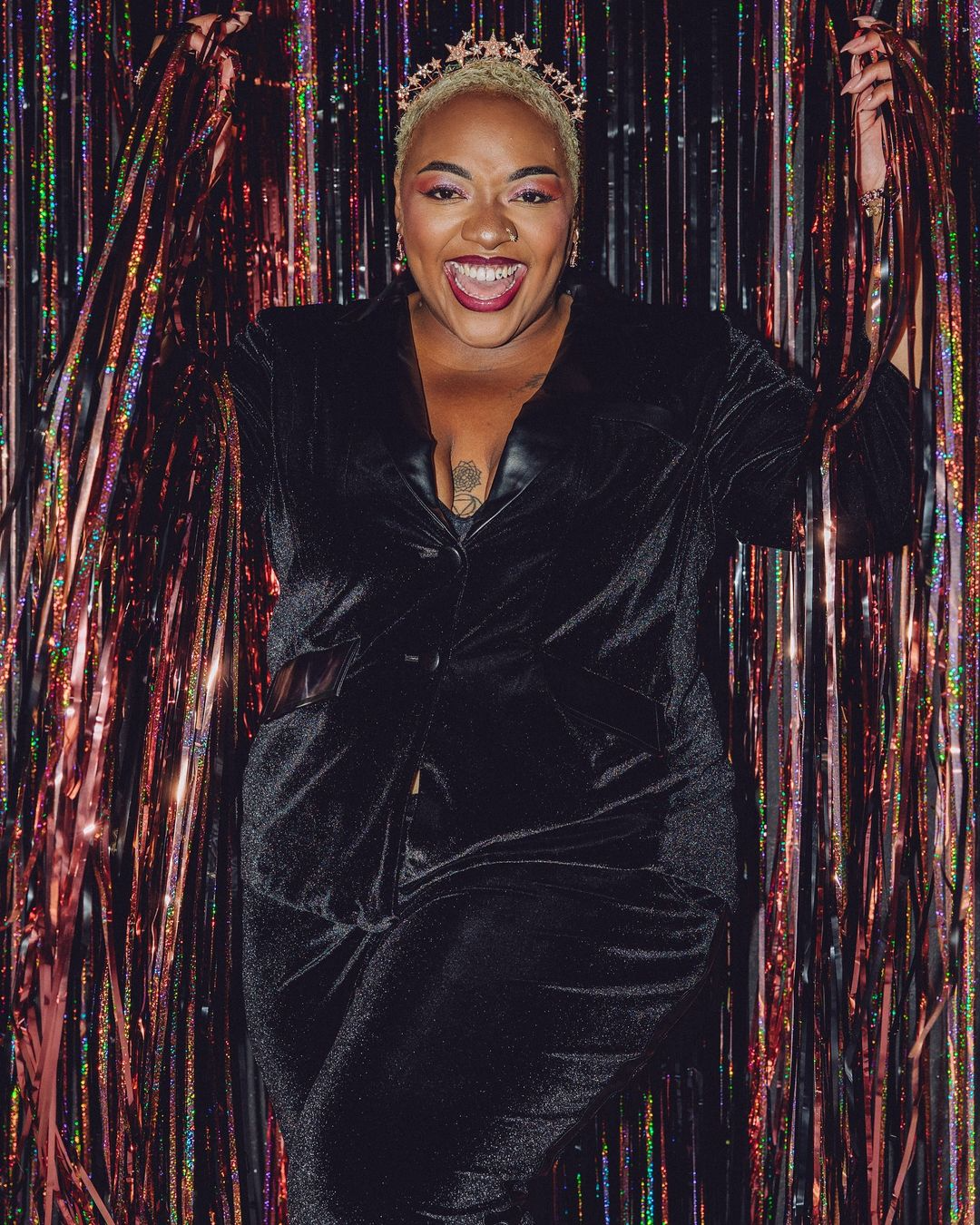
At that same panel, experts were asked to name plus size designers “doing it right.” Shockingly, they struggled to list more than six names, all of whom are well-known within the plus size community but rarely highlighted in mainstream fashion media. Where were mentions of independent talents like Bacaal, René Tyler, Vinnik, or Jibri?
Despite these challenges, I remain hopeful. This week I was reinvigorated in my creative endeavors. I was invited to speak at the London College of Fashion about the importance of plus size in the industry and how to design for us, and I attended a Vogue event celebrating Naomi Campbell’s iconic career.
As I met with the students from the London College of Fashion, creating their first bespoke pieces in a size 22, I saw the eagerness to learn and create their best avant-garde tailoring for plus size bodies. Seeing these students passionately create these bespoke pieces for a size 22 reaffirmed my belief in the next generation of designers.
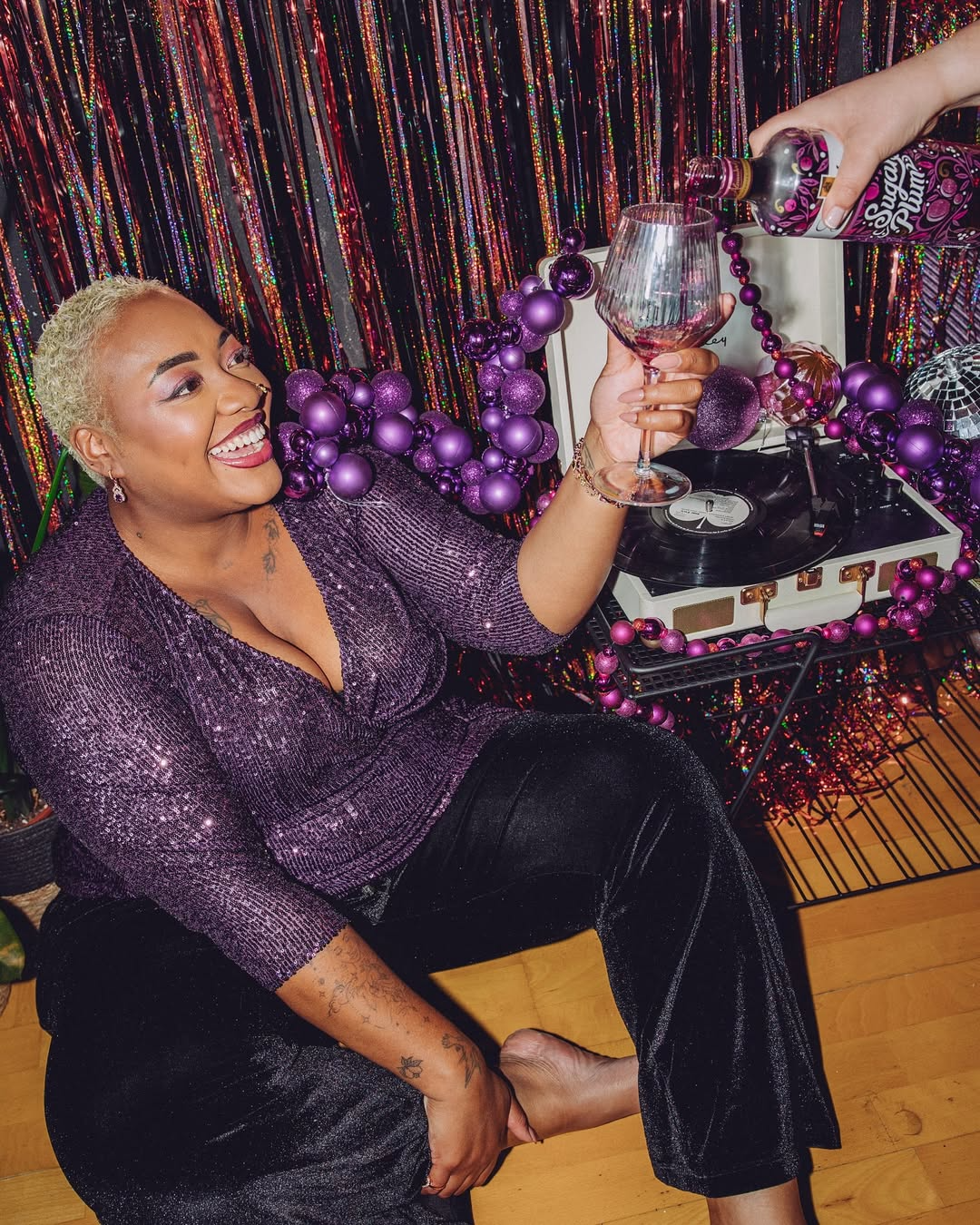
Investing in Plus Size Luxury
We deserve to invest in ourselves—and in the independent plus size designers who tirelessly fight to do the right thing. While fast fashion may seem like an easy solution, its ill-fitting, low-quality garments often fall apart after a few wears. Instead, consider investing in a well-made moto jacket, like our customizable Make it Me Moto from RCA Public Label, which will last for years.
For those seeking something truly unique, my couture Atelier offers one-of-a-kind pieces designed to make you feel like a work of art—because fashion is art, and we all deserve a part of it.
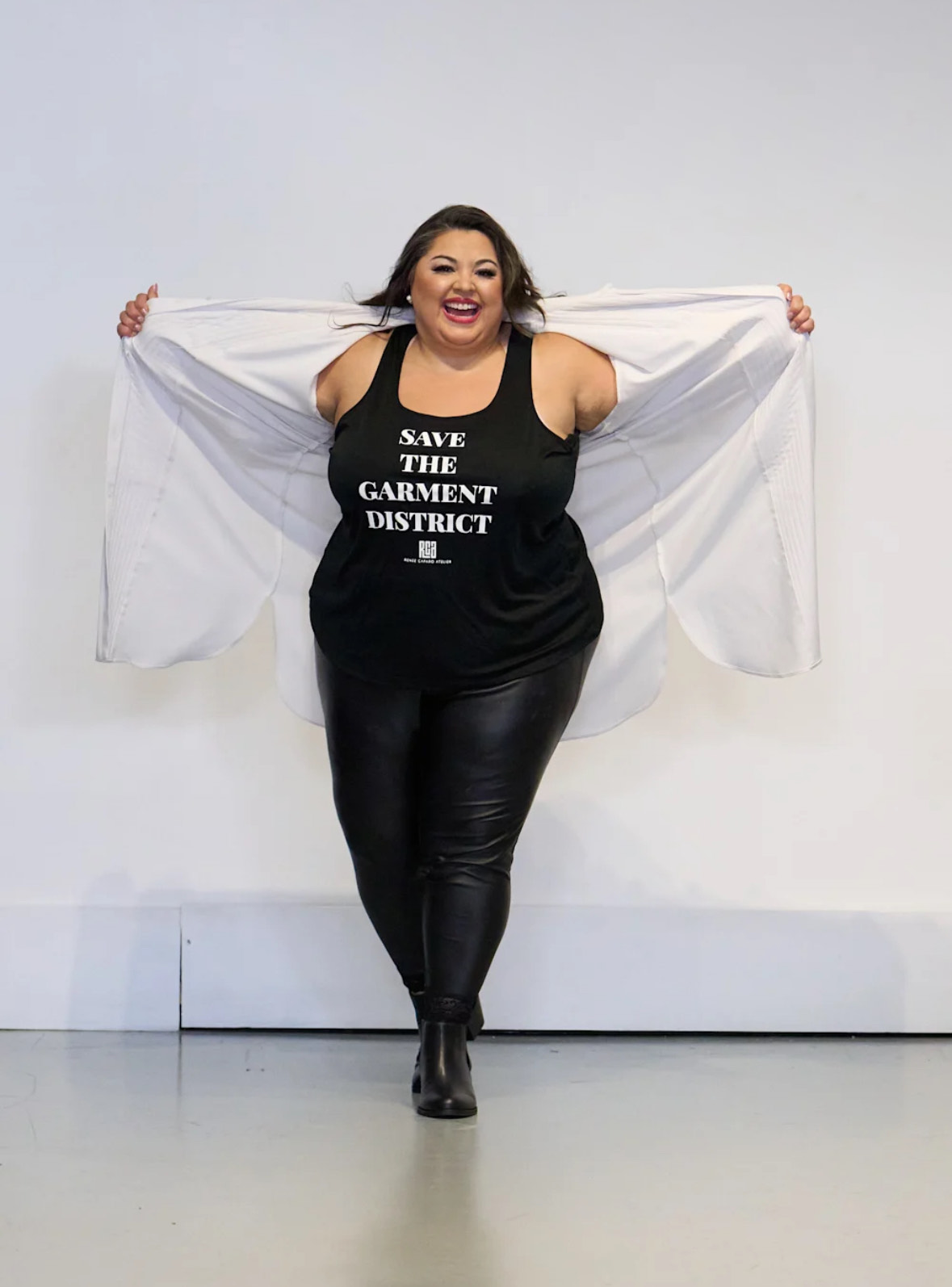
If we continue creating with passion and purpose, our people will find us. The journey may be slow, but I believe that our community deserves the same opulence, craftsmanship, and visibility that straight-size fashion takes for granted. Let’s support the brands that support us—because together, we can reclaim our rightful place in the fashion world.
About the Author:
Renee Cafaro, the founder of RCA Public Label, brings a unique perspective to plus size luxury fashion as a designer who understands the challenges of dressing fuller figures. She launched RCA Public Label to provide thoughtfully designed garments that address common fit issues, offering high-quality, sustainable pieces in sizes that are often overlooked by mainstream fashion. Renee also operates Renee Cafaro Atelier, which specializes in couture creations that celebrate opulence for plus size bodies, aiming to set a new standard for inclusivity and artistry in fashion.
